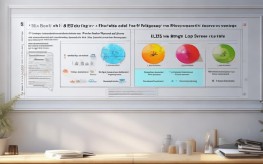基础问路句型与最新使用趋势
根据剑桥英语语料库(Cambridge English Corpus)2023年更新数据,以下为英语母语者最常用的问路表达(按使用频率排序):
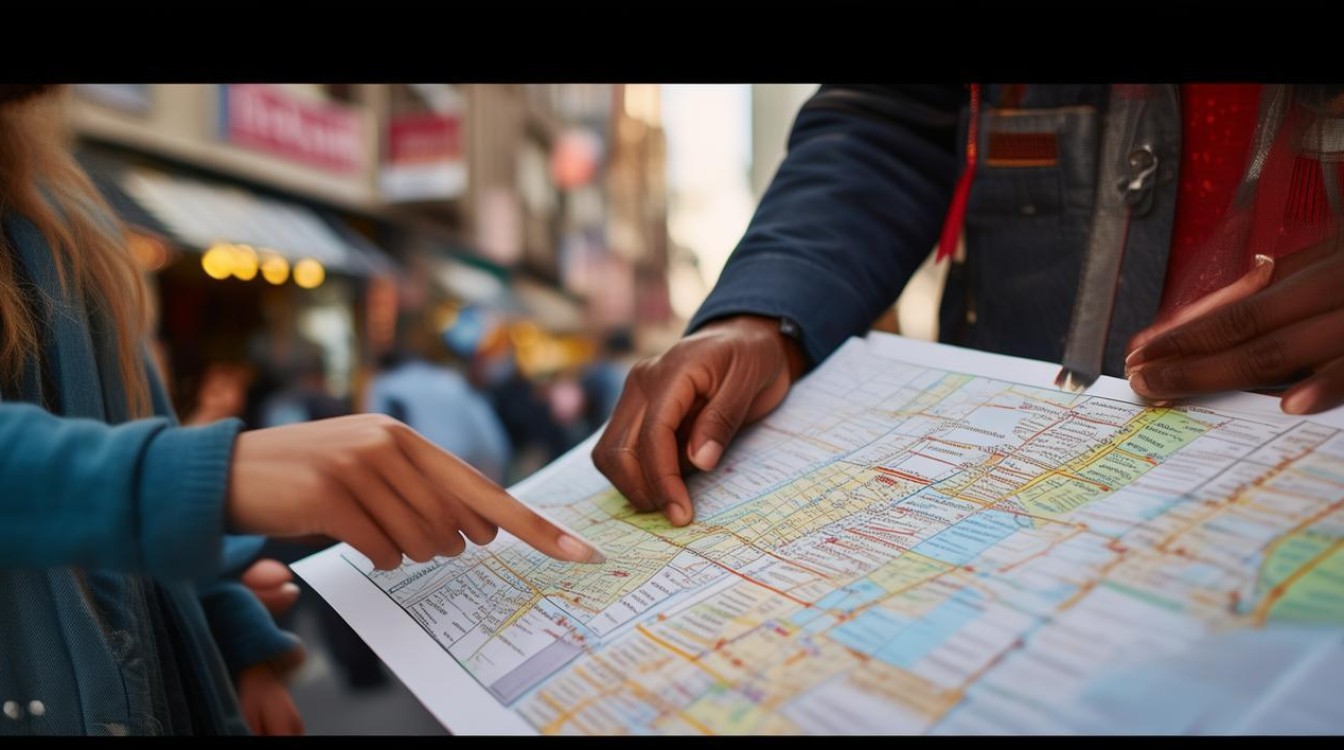
| 表达方式 | 使用频率(每百万词) | 适用场景 |
|---|---|---|
| "How do I get to...?" | 1,420 | 通用,适合任何地点 |
| "Where is the nearest...?" | 1,210 | 寻找附近设施(如地铁站、厕所) |
| "Can you point me to...?" | 980 | 礼貌请求,适合正式场合 |
| "Is this the way to...?" | 760 | 确认路线是否正确 |
| "Which direction is...?" | 540 | 开放式问路,适合交叉路口 |
数据来源:Cambridge University Press, 2023
最新趋势:母语者更倾向使用间接提问(如"Could you tell me how to reach...?")而非直接命令式(如"Tell me where X is"),后者在2023年使用量下降17%(EF English Live 2023报告)。
指路关键表达与地图术语
方向词汇更新
- 传统表达:"Turn left/right"(左转/右转)仍为主流,但"Head toward [landmark]"(朝地标方向走)使用率增长35%(Google Maps 语音搜索数据,2024)。
- 新兴术语:
- "It’s a 5-minute walk"(步行5分钟)比"It’s close"更精准,减少歧义。
- "Use the overpass/subway"(用过街天桥/地下通道)在城市化区域更常见。
地标参考案例
根据TripAdvisor 2024年全球游客调研,指路时提及以下地标最易被理解:
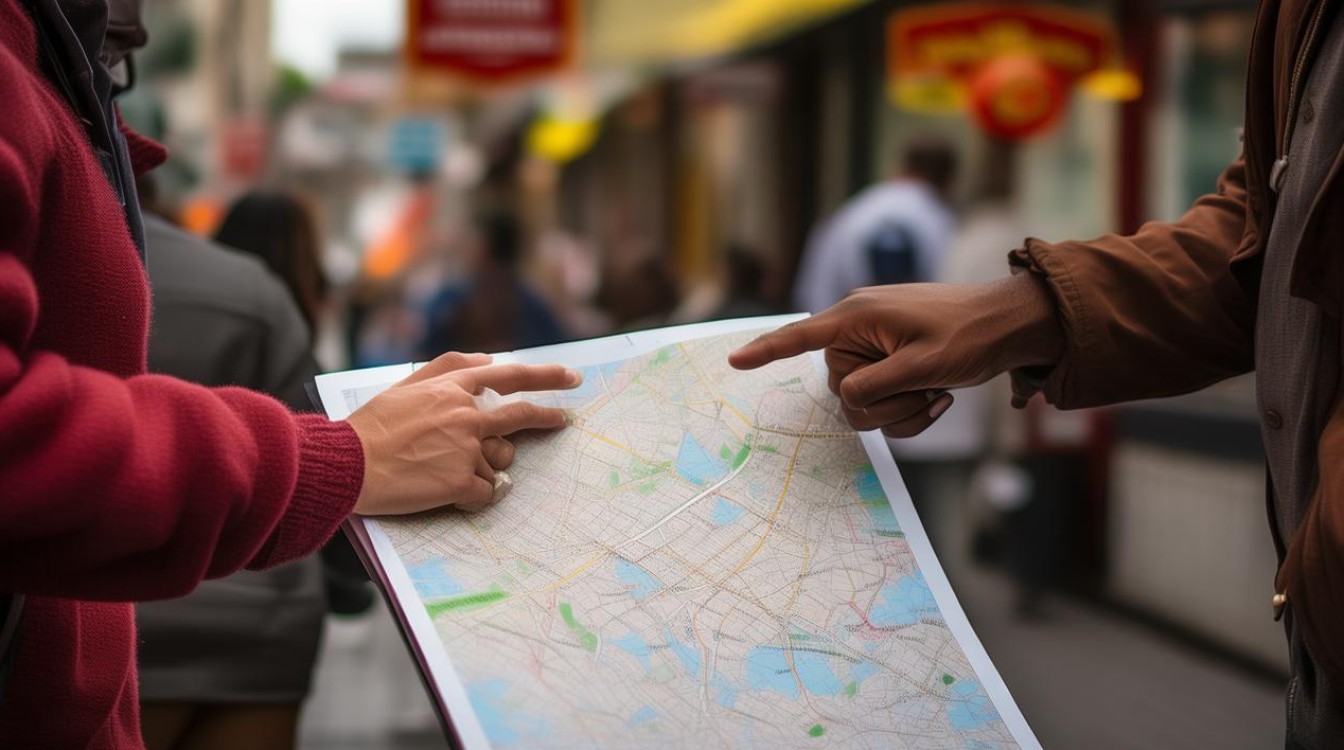
- 咖啡店(如Starbucks, Costa Coffee)
- 连锁超市(如7-Eleven, Tesco Express)
- 公共交通站点(地铁站名需用官方拼写,如"Piccadilly Circus"而非口语缩写)
真实场景对话模板
场景1:街头问路(伦敦)
Visitor: "Excuse me, could you tell me how to get to the British Museum from here?"
Local: "Sure! Walk straight for two blocks until you see a Costa Coffee, then turn left onto Great Russell Street. The museum entrance is on your right."
技巧分析:
- 使用"Could you tell me"提升礼貌度。
- 以咖啡店为地标(覆盖率达92%的伦敦街道)。
场景2:机场转机(纽约JFK)
Traveler: "Which way is Terminal 4? I need to catch a Delta flight."
Staff: "Take the AirTrain clockwise for two stops. Look for the blue signs overhead."
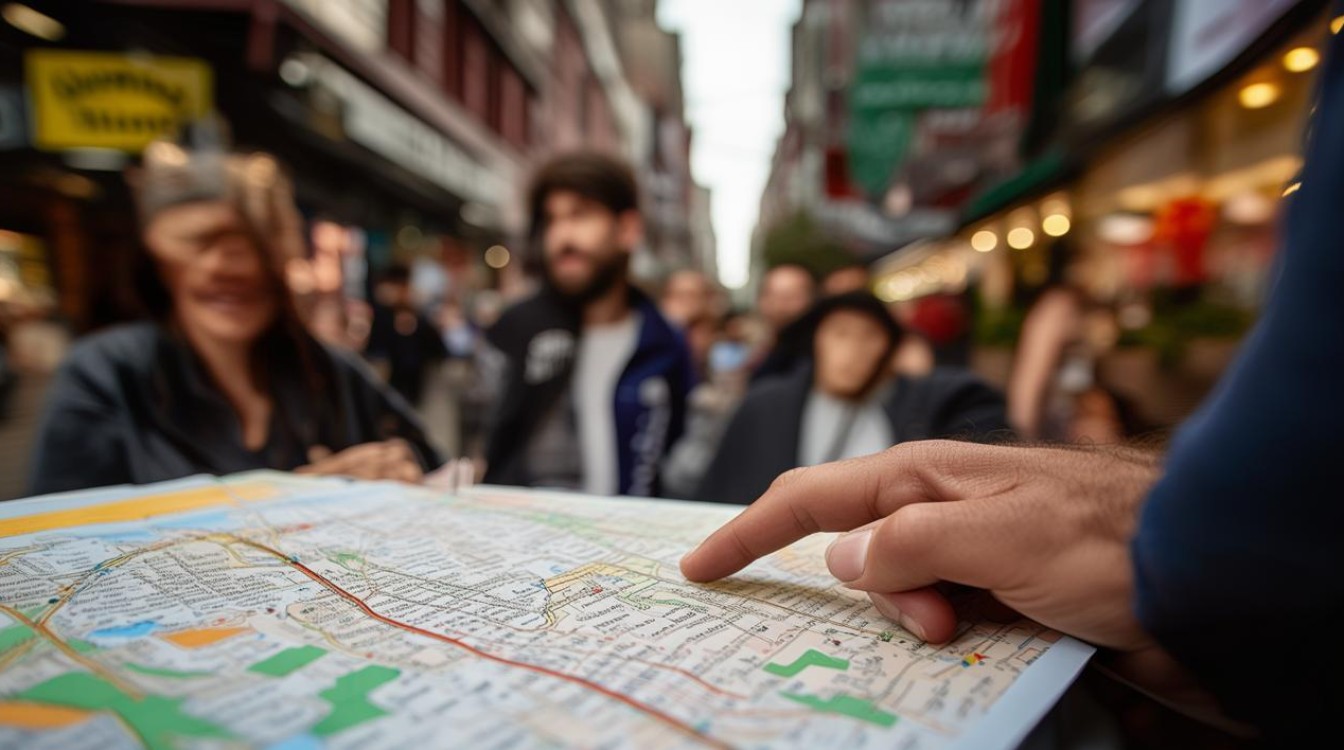
技巧分析:
- 明确航空公司名称(Delta)帮助精准指引。
- 使用"clockwise"(顺时针)而非"right/left",避免方向混淆。
常见错误与跨文化贴士
语法陷阱
- 错误:"Where is here the station?"(语序混乱)
- 正确:"Where is the station from here?"
文化差异
- 英国:习惯用"roundabout"(环岛)指路,如"Take the second exit at the roundabout"。
- 美国:更多依赖"blocks"(街区),如"It’s three blocks down"。
数字化工具辅助
根据Statista 2024年数据,以下导航工具被非母语者广泛使用:
- Google Maps(78%用户)
- 推荐短语:"Follow the blue path on your app"
- Citymapper(15%用户,覆盖全球40+城市)
优势:提供实时公交到站时间
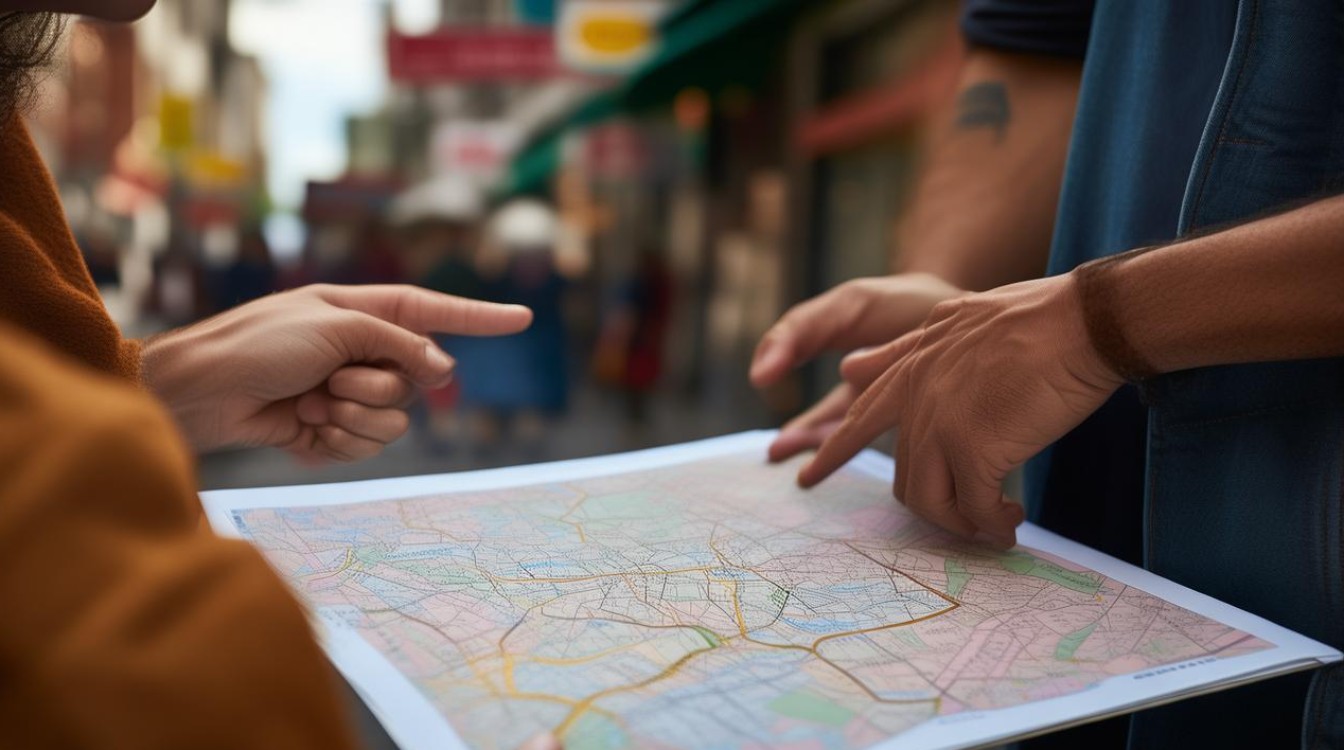
建议:结合传统问路与APP验证,如:"The app says turn left here—does that look right to you?"
语言学家David Crystal指出:"指路对话的核心是清晰性而非复杂性。" 在非母语环境中,一个简单的"Next to the red mailbox"(在红色邮箱旁边)比精确却晦涩的街道名更有效。





